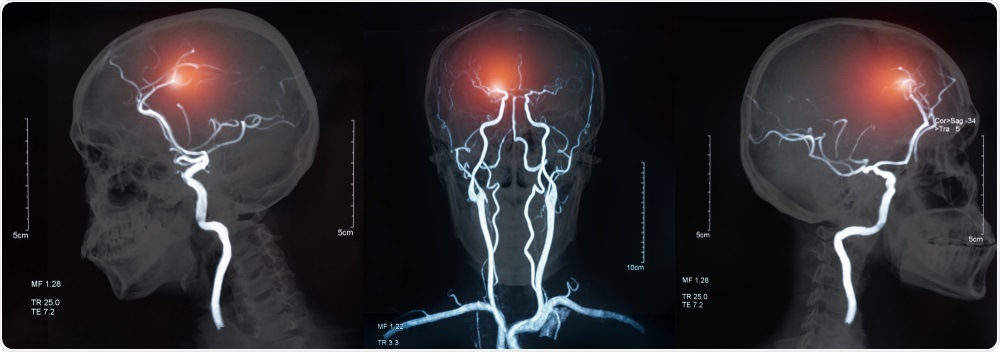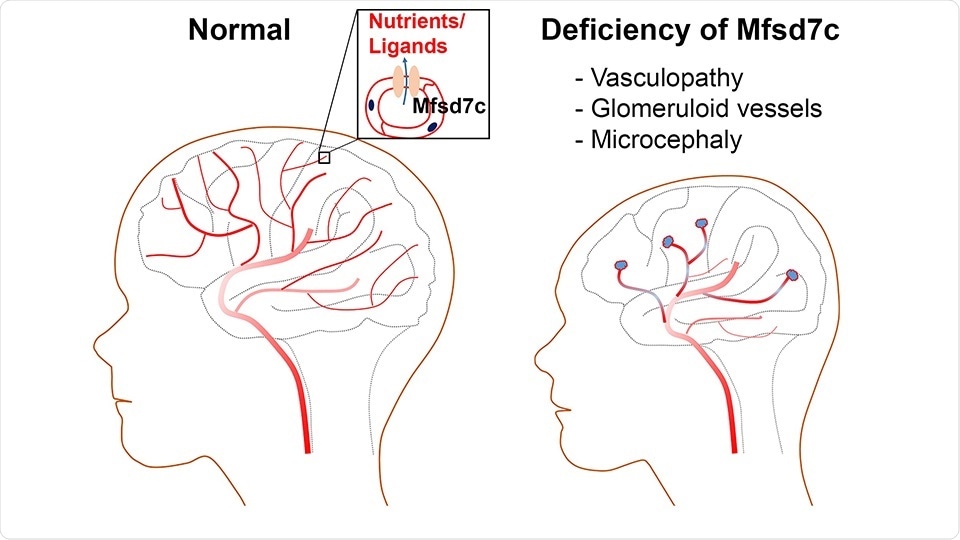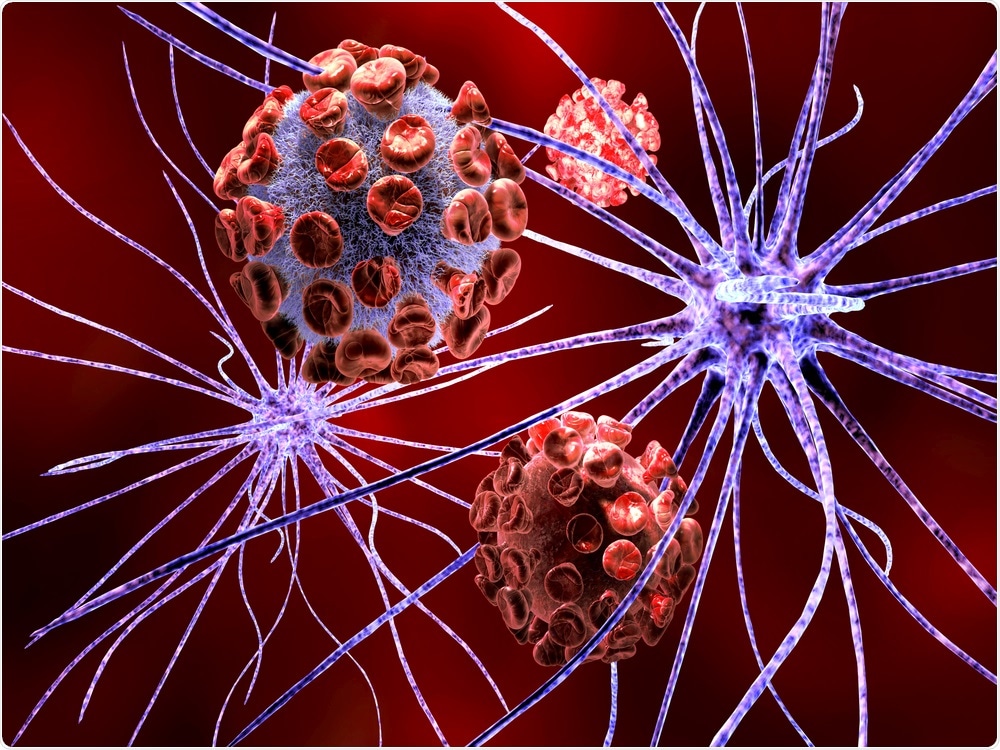AZoLifeSciences speaks to Professor Long Nam Nguyen about his research which led to the discovery of a protein that controls brain-blood vessel development.
Why are brain blood vessels so critical in brain function?
Blood vessels in the brain are specialized structures (the so-called blood-brain barrier) which form a physical barrier to separate macro-molecules and blood-borne cells from neuronal cells.
Blood vessels function by providing oxygen and nutrients to neuronal cells.

Image Credit: create jobs 51/Shutterstock.com
How can brain blood vessels become damaged and what can this cause?
In several pathological conditions such as stroke, deposition of atherosclerosis plaques of cholesterol particles in cerebral arteries can block blood flow.
The increased blood flow due to occlusions in blood vessels might result in breakage which leads to hemorrhage.
Reduced functions of brain blood vessels are also observed in Alzheimer’s disease, Cerebral palsy, and vascular dementia. However, the disease mechanisms are not well defined.
Why is the brain, and brain function, not very well understood?
During brain growth and development, it needs to have oxygen and nutrients delivered via blood vessels.
However, the nutrients that the brain needed for its proper functions are yet fully uncovered.
Can you describe the research you carried out that led to the discovery of the MFSD7c protein?
We utilized molecular techniques to detect the presence of MFDS7c in brain blood vessels. We also collaborated with human geneticists to identify human patients with an inherent loss of MFSD7c.
To gain more insights into the disease mechanisms in the patients, we generated the genetic loss of MFSD7c in mice.
Together, we discovered that MFSD7c is required for brain growth. Because MFSD7c is a protein present in brain blood vessels, we propose that this protein functions by providing essential nutrients to the brain during development.

Image Credit: NUS
What role does this protein play in brain blood vessels?
Our research evidence supports that MFSD7c is a protein transporter. It functions as a gateway/door to allow essential nutritional molecules to enter the brain.
If this protein is not present, or present in low quantities, what effects can this have?
Deficiency for this protein will result in early death in mice and possibly in humans. This is because of severely reduced growth of brain blood vessels to provide oxygen and nutrients during development.
How could this discovery help in further understanding of brain growth?
Our scientific evidence supports that a lack of this protein causes microcephaly in mouse and human patients.
Therefore, it is predicted that this protein helps assimilate essential nutrients for blood vessels as well as for brain development.

Image Credit: Ralwell/Shutterstock.com
Do you believe that one day your research could help in the development of treatment for neuronal diseases?
Our prior research helped to reveal another pathway in which a protein transporter helps bring in essential fatty acids such as those from fishes and nuts, to the brain for its growth.
It is quite remarkable that this research is similar in a way that we uncovered a different protein transporter which is also required for brain growth.
More importantly, this protein (MFSD7c) may have dual functions as it is also required for the growth of blood vessels as well as brain cells.
Yes, I believe that this scientific evidence will guide us to the development of therapeutics for the treatment of neuronal diseases.
What are the next steps in your research?
We are actively pursuing the molecular functions of MFSD7c to understand how it regulates brain growth.
More importantly, we are interested in figuring out what types of essentially nutritional molecules are required by brains. This is an understudied area of research.
Where can readers find more information?
Click here to read more about the research: https://www.jci.org/articles/view/136727
About Professor Long Nam Nguyen
Dr. Nguyen is a principal investigator at the Life Sciences Institute in NUS. He holds a tenurable position as an assistant professor in the Department of Biochemistry, Yong Loo Lin School of Medicine.
He delivers lectures to undergraduate and graduate students in NUS and conducts basic research as a group leader.